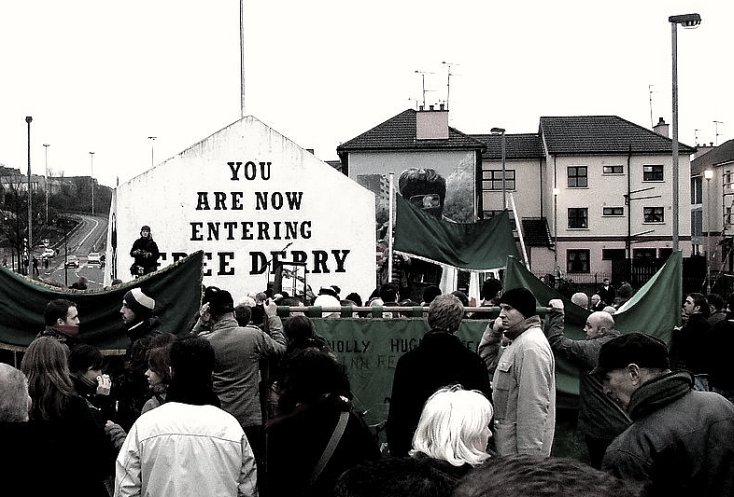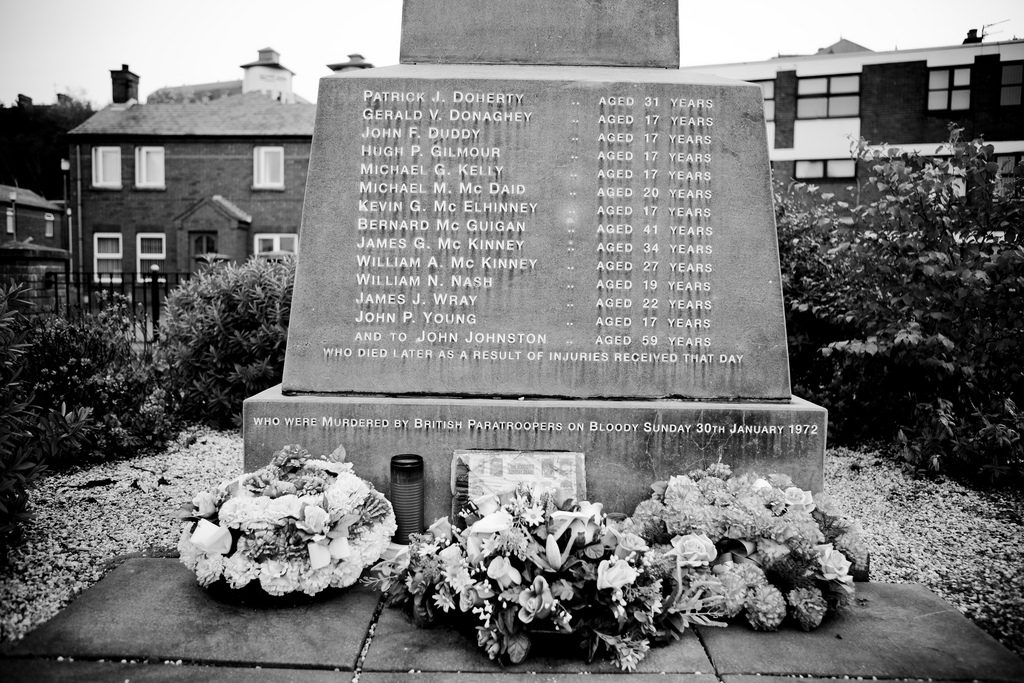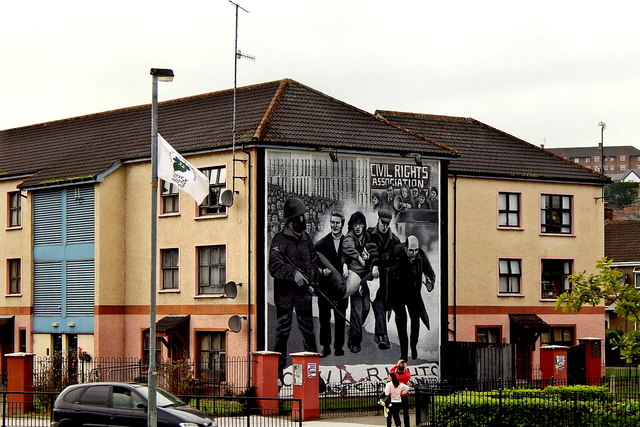One former British soldier is to be charged with the murders of two men and the attempted murders of four others over the Bloody Sunday shootings in Londonderry.
Soldier F will face prosecution for the murders of James Wray and William McKinney and the attempted murders of Joseph Friel, Michael Quinn, Joe Mahon and Patrick O’Donnell.
There was insufficient evidence to provide a reasonable prospect of conviction for the other 16 former soldiers, the Public Prosecution Service said.
Families gathered outside The Museum of Free Derry, yards from where the killings took place 47 years ago, and marched together to the city centre to hear the decision.
A murder investigation was launched by police into the events of the fateful day in January 1972 when 13 civil rights activists were shot dead in Derry, Northern Ireland, and 15 others wounded.
Bloody Sunday families assemble in Bogside to walk to city centre awaiting possible charges against soldiers pic.twitter.com/S9iuhlxmKy
— alex thomson (@alextomo) March 14, 2019
Following the largest and most expensive ever public inquiry in the UK, the Public Prosecution Service of Northern Ireland investigated charges of murder, attempted murder and grievous bodily injury with intent to endanger life.
One former soldier from Parachute Regiment’s 1stbattalion will now face charges of murder and attempted murder.
 Commemoration 35 years on from Bloody Sunday. Credit: neverendingseptember/Flickr
Commemoration 35 years on from Bloody Sunday. Credit: neverendingseptember/Flickr
Twenty subjects were interviewed by police in the investigation including two former ‘Official IRA’ members, but one of the soldiers has since died.
For Michael McKinney, Jean Hegarty and John Kelly and so many others whose loved ones never returned home from Derry that afternoon, it is a day that marks years of searching for closure.
“I was with Michael when he was shot,” said Kelly, recalling the tragic day 47 years ago. “I went in the ambulance with him. I can still see him lying there after being shot. He was a young boy.”
Speaking to The Guardian, the 70-year-old continued: “His face turned grey and a sort of green colour. I was in the mortuary afterwards. There were nine or 10 bodies. It was pure carnage. My mother never got over the loss of her son.”
WARNING: if soldiers are charged over Bloody Sunday legal proceedings become active. That means comment on social media beyond the facts of the charges is a risk of contempt which is a serious criminal offence. Be careful.
— alex thomson (@alextomo) March 14, 2019
The outcome of the £195m inquiry which trawled through 668 witness statements and many visual and 125,000 pages of written documents, saw Lord Saville declare the killings “unjustified and unjustifiable”.
It brought into focus the right to life, and where the responsibilities of the state begin and end when investigating deaths.
Speaking following the conclusion in 2010 which brought some peace for the victims, Prime Minister David Cameron also gave the families a heartfelt apology.
But however much the events of that day are retold in grieving minds, official investigations into what happened have been mired in controversy.
 The ‘Bloody Sunday’ Memorial. Credit: Hossam el-Hamalawy/Flickr
The ‘Bloody Sunday’ Memorial. Credit: Hossam el-Hamalawy/Flickr
The initial Widgery Tribunal “was veiled in secrecy, subject to political influence, and negligent in its failure to consider crucial eye-witness testimony,” Human Rights Watch said amid the launch of the landmark Lord Savile review in 1998.
The charity welcomed the decision of the British government to form a new review with full judicial weight, stating that “the relatives of victims have a right to know the truth about the events of Bloody Sunday.”
But it is not just the inquiries which have raised ill feeling. Northern Ireland legislation currently limits sentences committed after 1973 to a maximum of two years.
Speaking to The Guardian, Paul O’Connor of the Pat Finucane Centre in Derry explained: “From 1970 on, soldiers had a de facto amnesty in Northern Ireland.
“Documents from the National Archives show there were discussions between the attorney general and the chiefs of staff where they made it quite clear they would do everything in their power to protect soldiers from prosecution.”






